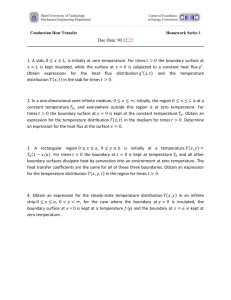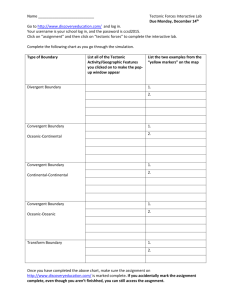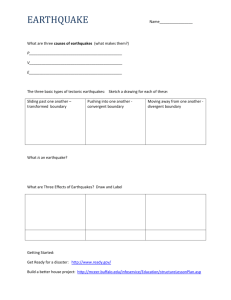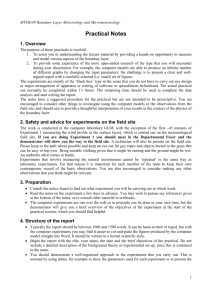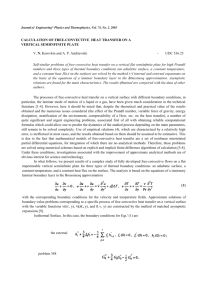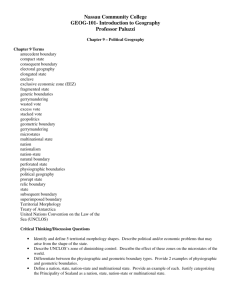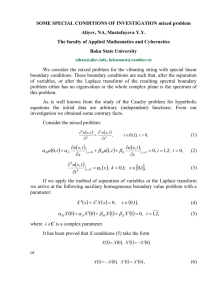Chapter 8 Vocabulary Political Geography
advertisement
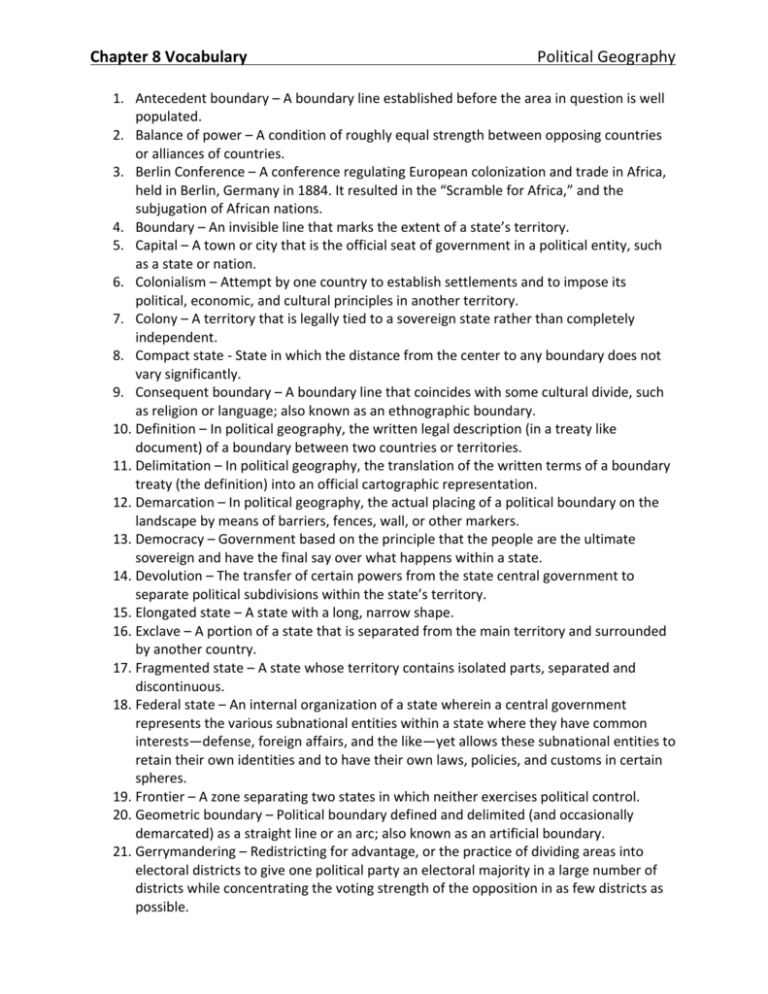
Chapter 8 Vocabulary Political Geography 1. Antecedent boundary – A boundary line established before the area in question is well populated. 2. Balance of power – A condition of roughly equal strength between opposing countries or alliances of countries. 3. Berlin Conference – A conference regulating European colonization and trade in Africa, held in Berlin, Germany in 1884. It resulted in the “Scramble for Africa,” and the subjugation of African nations. 4. Boundary – An invisible line that marks the extent of a state’s territory. 5. Capital – A town or city that is the official seat of government in a political entity, such as a state or nation. 6. Colonialism – Attempt by one country to establish settlements and to impose its political, economic, and cultural principles in another territory. 7. Colony – A territory that is legally tied to a sovereign state rather than completely independent. 8. Compact state -­‐ State in which the distance from the center to any boundary does not vary significantly. 9. Consequent boundary – A boundary line that coincides with some cultural divide, such as religion or language; also known as an ethnographic boundary. 10. Definition – In political geography, the written legal description (in a treaty like document) of a boundary between two countries or territories. 11. Delimitation – In political geography, the translation of the written terms of a boundary treaty (the definition) into an official cartographic representation. 12. Demarcation – In political geography, the actual placing of a political boundary on the landscape by means of barriers, fences, wall, or other markers. 13. Democracy – Government based on the principle that the people are the ultimate sovereign and have the final say over what happens within a state. 14. Devolution – The transfer of certain powers from the state central government to separate political subdivisions within the state’s territory. 15. Elongated state – A state with a long, narrow shape. 16. Exclave – A portion of a state that is separated from the main territory and surrounded by another country. 17. Fragmented state – A state whose territory contains isolated parts, separated and discontinuous. 18. Federal state – An internal organization of a state wherein a central government represents the various subnational entities within a state where they have common interests—defense, foreign affairs, and the like—yet allows these subnational entities to retain their own identities and to have their own laws, policies, and customs in certain spheres. 19. Frontier – A zone separating two states in which neither exercises political control. 20. Geometric boundary – Political boundary defined and delimited (and occasionally demarcated) as a straight line or an arc; also known as an artificial boundary. 21. Gerrymandering – Redistricting for advantage, or the practice of dividing areas into electoral districts to give one political party an electoral majority in a large number of districts while concentrating the voting strength of the opposition in as few districts as possible. 22. Heartland theory – A geopolitical hypothesis, proposed by British geographer Halford Mackinder during the first two decades of the twentieth century, that any political power based in the heart of Eurasia could gain sufficient strength to eventually dominate the world. Mackinder further proposed that since Eastern Europe controlled access to the Eurasian interior, its ruler would command the vast “heartland” to the East. 23. Imperialism – Control of a territory already occupied and organized by an indigenous group. 24. Irredentism – A movement to reunite a nation’s homeland when part of it is contained within another state. The piece of homeland that is ruled by the other state is known as an irredenta. 25. Landlocked state – A state that does not have a direct outlet to the sea. 26. Perforated state – A state that completely surrounds another one. 27. Physical boundary – Political boundary defined and delimited (and occasionally demarcated) by a prominent physical feature in the natural landscape—such as a river or the crest ridges of a mountain ridge; also known as a natural boundary. 28. Prorupted state – An otherwise compact state with a large projecting extension. 29. Relic boundary – A former boundary line that is still discernable and marked by some cultural landscape feature, such as a fence. 30. Shatterbelt – A region caught between powerful forces whose boundaries are continually redefined. 31. Sovereignty – A principle that holds that final authority over social, economic, and political matters should rest with the legitimate rules of independent states. 32. Subsequent boundary – A boundary line that is established after the area in question has been settled and that reflects the cultural characteristics of the bounded area. 33. Superimposed boundary – A boundary line placed over and ignoring an existing cultural pattern. 34. Supranationalism – Term applied to associations created by three or more states for their mutual benefit and achievement of shared objectives. The European Union is an example of a supranational organization. 35. Territoriality – An individual or group attempt to identify and establish control over a defined territory considered partially or wholly an exclusive domain; the behavior associated with the defense of the home territory. 36. Terrorism – The calculated use or threatening of violence against civilians in order to attain goals that are political or religious or ideological in nature. 37. Unitary state – An internal organization of a state that has a centralized government and administration that exercises power equally over all parts of the state. 38. United Nations Convention on the Law of the Sea (UNCLOS) – A code of maritime law approved by the United Nations in 1982 that authorizes, among other provisions, territorial waters extending 12 nautical miles (22 km) from shore and 200-­‐nautical-­‐mile-­‐ wide (370-­‐km-­‐wide) exclusive economic zones. 39. United Nations – The world’s preeminent supranational organization, a world governing body enforcing the upkeep of peace and basic human rights worldwide.

